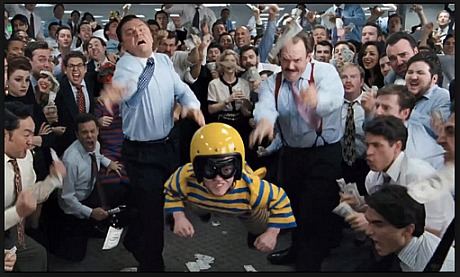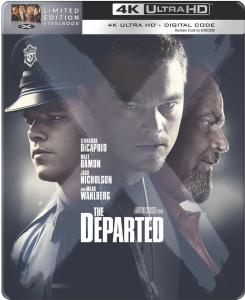Hollywood has long practiced the art of conflicted moral messaging, or the pushing of lofty moral or ethical aspiration while simultaneously enticing the crowd with cheap highs and tawdry pleasures.
For decades this was Cecil B. DeMille‘s game, especially with films like Sign of the Cross and The Ten Commandments — give the peons sex, glamour and lavish spectacle while preaching somber adherence to the Old Testament gospel.
Martin Scorsese‘s The Wolf of Wall Street employed a similar strategy, revelling in Jordan Belfort‘s lifestyle of drugs, depravity and debauchery while condemning Wall Street’s culture of greed and exploitation.
I’ve never forgotten LexG saying at the time that he liked The Wolf of Wall Street “for the wrong reasons” — i.e., he’d had so much fun with the party-boy behavior that the moral message barely registered.
The latest trailer for Greta Gerwig‘s Barbie seems to be following suit. On one hand it’s clearly a satire of girly-girl shallowness and empty Coke-bottle personalities and pretty-in-pink aesthetics, but on the other hand many who will pay to see it (are we allowed to say that younger women are apparently the target audience?) will be adoring the abundant plastic materialism and smiley-face attitudes that the film is telling its audience to maybe think twice about.
Trust me, there will be millions who will love Barbie “for the wrong reasons.”















